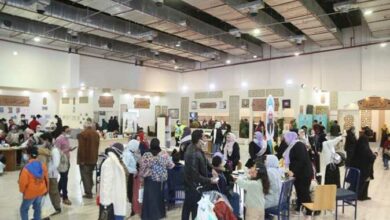The Ministry of Trade and Industry began intensive negotiations with the Ministry of Finance to approve an estimated budget that is earmarked for the implementation of a system of incentives to deepen the nation’s industrial base. Amr Asal, chairman of the General Authority for Industrial Development, said he expects the incentives to take effect at the beginning of the new financial year on 1 July 1 after being approved by the council of ministers.
The Commission on Industrial Expansion, under the leadership of el-Fariq Hamdi Wahiba, has determined which industries will receive incentives in the same way that incentives were drawn up to develop Upper Egypt. Rachid Mohamed Rachid, minister of Trade and Industry then approved the industrial incentives.
The list of targeted industries includes producers of sodium carbonate, titanium dioxide, air compressors, electric generators, CAT scan equipment, energy-saving lights, mixed fibers, pure cotton fabric, woven and knitted fabrics, dyes, accessories, automated packing machines, cold rooms and freezers, vegetable oil refining units, sea water desalinization equipment, rapid proto typing equipment, copper and titanium alloys and industries that depend on Egyptian raw materials like black and white sands and marble. In the field of packaging, the incentives package will cover the production of cartons for juice and milk products. It will also cover organic medicines, medical sterilization equipment, chip boards for timber production and adhesives.
Asal indicated that the incentives included the provision of free land, LE15,000 for every work opportunity generated, in addition to support for training projects and services offered by the Center for Industrial Modernization. Materials and products required for the production of the abovementioned products will be exempted from customs duties.
Hamdi Wahiba, chairperson of the Commission on Industrial Expansion, said the commission originally suggested that the incentives be restricted to engineering and electronic products. However, the Rachid requested that the list of applicable products be expanded as he called for the industrial community to deal with the idea of industrial expansion more seriously. The commission ratified an agreement with Hisham Danana, president of Hans Wan, to conduct an inventory of existing factories in Egypt to publish on the internet so industrialists can know what is produced in Egypt, before they look to import goods from abroad. The commission considered the first assessment to be unsatisfactory and requested that more accurate information be provided.
The commission has decided to hold an exhibition at the end of September, in which the needs and current imports of each industry will be presented. The exhibition seeks to provide investors with an opportunity to become familiar with Egyptian industry. Adham Nadim, director of the Center for Industrial Modernization, said the commission held extensive discussions before choosing the 90 industries to receive incentives. Such discussions including researching the overlaps between various industries, noting that to expand an industry such as the leather industry, technologically advanced slaughterhouses would need to be built.
Nadim noted that the incentives offered under current law (10 percent price increase by decision of the council of ministers) were not effective and that no supervisory apparatus existed to insure compliance with such procedures. He added that the new incentives will be somewhat flexible depending on what the Center for Industrial Modernization is offered by global manufacturers. Deepening the industrial base is not just tied to a certain individual, council, or ministry, but rather it is a society-wide project.
Egypt’s industrial strategy is currently behind that of the leading industrialized countries, and better than that of less developed country, a situation that will likely persist until 2025, said Nadim. The strategy consists of three stages: the development of labor-intensive industries, then value-added and high-tech industries and finally industries requiring advanced research and cognitive skills. Nadim stressed the connection between increasing exports and expanding industry in Egypt, with the development of transportation, communication, storage and port infrastructure linking the two goals. He noted that commission is circulating a list of industrial incentives to industrialized states such as Spain, Italy and Brazil.
Mustafa Abid, a member of the Commission on Industrial Expansion, said the commission studied current major national projects, and that it gave priority to ensuring that the Ministries of Electricity, Oil and Housing have a presence at the upcoming exhibition. He noted that these ministries have large demands for various products that could be filled in the present or future. The Egyptian market may not be large enough to support industries that require a certain size market, said Abid. In such case, the industry’s products will be exported to foreign markets with free trade agreements or other.
Translated from the Arabic Edition.
Business




